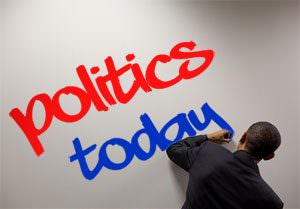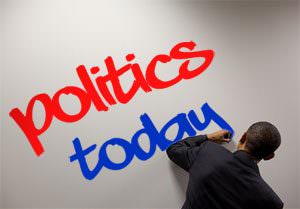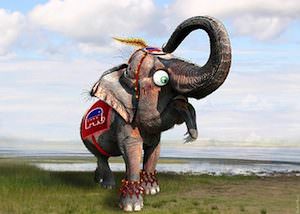It’s a Brave New (Political) World
Any way you slice and dice the data, they point toward inevitable political change over the next couple of decades.The 2012 election is all over but the shouting, and the shouting this time seems extraordinarily loud and revealing of the future of American politics.
Do you hear what I hear? Any way you slice and dice the data, beginning with the fact that digitalization has produced more and more accurate and actionable data, they point toward inevitable political change over the next couple of decades. In 1970, in another century, Richard Scammon and Ben Wattenberg co-authored a book called “The Real Majority.” It was a huge best-seller, hugely influential, using the data available at the time to show that the national electorate, particularly middle-class voters, were a complicated, different kind of people than the caricatures seen by candidates and their campaign managers.Scammon and Wattenberg even created a typical voter: a white, middle-aged housewife from Ohio with a husband who was a union member. There was more to it — it changed national politics — but nothing like what we see now. New statistical science and models were created this time by the Obama data team of only 54 people hiding out in Chicago. Those “geeks” can now tell you her height and weight, IQ, voting history, the number of toilets in her home, what magazines she likes best and what national issues she cares about. Again, national politics will never be the same.Starting with data collected by the Democratic National Committee over almost 20 years, and adding tens of thousands of telephone and front-door contacts, Obama’s team built models of states, neighborhoods and streets. Their most impressive achievement, according to the Los Angeles Times, was in Florida. Their first models indicated Obama had a 30 to 40 percent chance to carry the state. Their final Florida model, after contacting newly registered voters, indicated that 80 percent of those 250,000 new voters were likely Obama supporters. The job then was to make sure those new voters actually got to the polls. Obviously they did, and the president won the state.“Science”? The word, which used to mean the space program, at least as politicians used it, was suddenly being used over and over again by commentators, candidates and their managers to explain what they were trying to say in analyzing the election. That to me is the big takeaway from the election, although there were other factors worth mentioning:— Demographics. A study of the new California congressional delegation by Harold Meyerson of a liberal magazine, the American Prospect, showed that the 38 Democrats elected this year included 18 women, nine Latinos, five Asian-Americans, three African-Americans, four Jews and at least one gay American. The 15-member Republican delegation is all white men.— Sooner or later, there is going to be a collision between modern data collection and the Electoral College. This year, because there was so much data gathered and analyzed so quickly on who votes, where and why, the national campaign actually took place not in the nation but in eight or nine “battleground” states. Were Democrats in Texas or Republicans in California effectively disenfranchised because the results in those states were never in doubt (or play) in places where lopsided voter registration favored one party over the other?— The Republicans look like a post-election clown show. Rather than accept a role as an elder statesman — after all, Obama has invited him and his ideas to the White House — Mitt Romney is whining that the president “bought” the votes of his infamous 47-percenters. Like it or not, loser, the “slackers” came out to vote — against you. That’s democracy.© 2012 UNIVERSAL UCLICK
Your support matters…Independent journalism is under threat and overshadowed by heavily funded mainstream media.
You can help level the playing field. Become a member.
Your tax-deductible contribution keeps us digging beneath the headlines to give you thought-provoking, investigative reporting and analysis that unearths what's really happening- without compromise.
Give today to support our courageous, independent journalists.






You need to be a supporter to comment.
There are currently no responses to this article.
Be the first to respond.